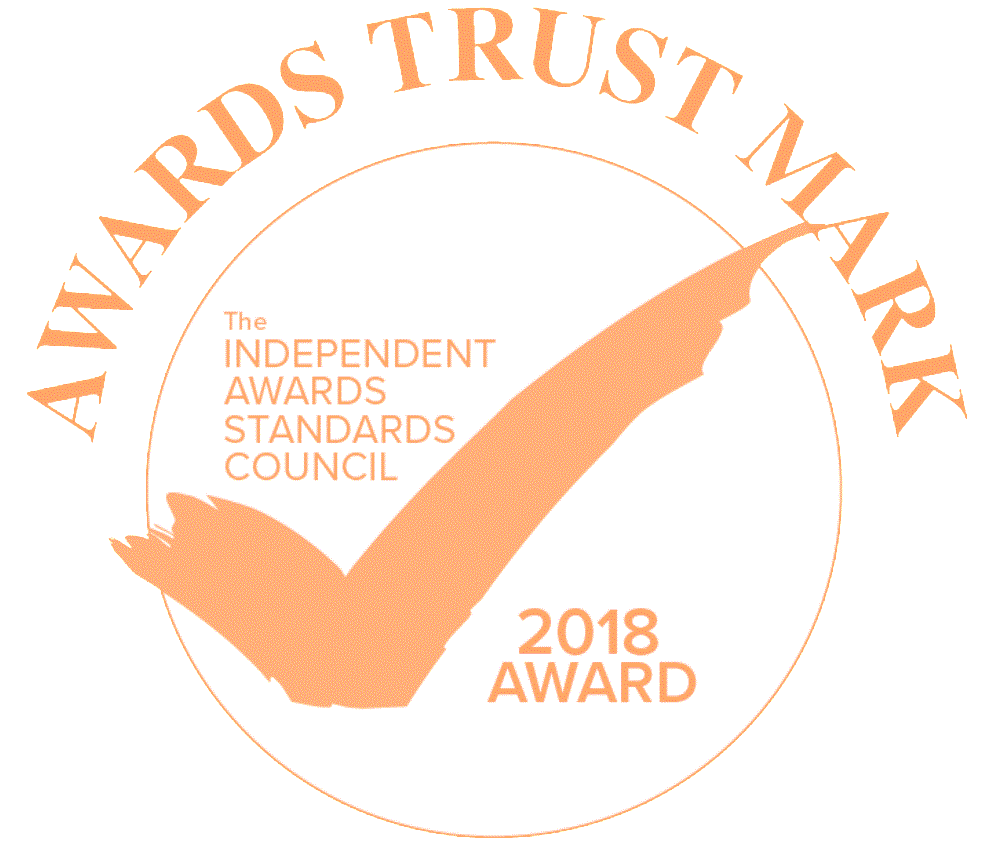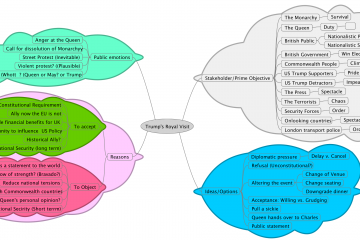Enter the 2019 US SEarch Awards on this link.
The US Search Awards are currently accepting entries for 2019 (Entry Deadline is 28th June, but probably will be open until around 12th July). You should really enter these, but you can dramatically improve your chances if you know what annoys the judges. I absolutely believe that the US Search Awards judging is completely impartial and non-partisan. There might still be a slight bias towards UK judges, but this year the team have tried harder than ever to use US judges.
I know a lot of the judges personally, and they would “out” you REALLY quickly if you tried to strong-arm them into winning a category. But that doesn’t mean you cannot influence judges! The best way to do it is simply to understand what they love and hate about the mass of entries they have to plough through. I haven’t been a judge at these before, but I have won a few, and understand that you would be amazed at the difference between a well thought through entry and an afterthought. Apparently, it doesn’t take much to rise above the mediocre.
Earlier in the year, I did some research into what search awards judges are looking for in Europe… here is that post…
The Judging Inside Track
To help – I thought I’d reach out to the judges that are in my direct connections on LinkedIn
There were a few transparent and recurring themes in the replies… you’ll see them as you read through, but one in particular looks to be a bone of contention. The judges want to see benefits defined in quantifiable money (Euros, not percentages)
- Like: “When entrants follow the guidelines and use actual numbers, not percentages” (Jim Banks)
- Like: “When an entry has actual data” (Simon Heseltine)
- Dislike: “Avoid talking about ‘massive % growth’ if you don’t give us a starting point (Anders Hjorth)
- Dislike: “Don’t hide or leave out the information necessary to be qualified for the category, for example… providing the results only [as a] percentage.” (Motoko Hunt)
- Dislike: “Not trusting me with your budget”. (Laurent Bourelly)
I imagine that for most agencies entering the competition, giving out the Euros and Cents involved in either the input or output of a campaign is protected under an NDA between the agency and the company which transcends the will of the judges… but the entries ARE under NDA and there are other ways to make good with your own client, rather than risking the wrath of the judges.
Have a look at the responses for yourself, they make interesting reading. There turned out to be 35 of judges in my immediate Linkedin circle. I sent each one a single DM on Linkedin and if they didn’t respond, I left them to it. Here’s what I asked:
“I am doing a post for the EU Search Awards about “getting under the judge’s skins”. If you want to pitch in, I am looking for a pet “like” and a pet “hate” online… Things that people can mull over when pitching. Two sentences are the maximum I’ll use. I’ll be putting the post together on Monday if you want to be included?”
Here are their responses in their words. I have only amended typos or topped and tailed some for brevity and readability (with the help of “Grammarly”, my new favourite tool).
Marty Weintraub
Pet like: When conversion results are quantified as scale (how many), conversion percentage, and business results (extra money over expectations ONLY from this effort). Pet hates: Massive word count and not doing my pet like.
Jim Banks
I like: When entrants follow the guidelines and use actual numbers, not percentages. So that might be “revenue more than doubled from £1 million to £2.5 million” If they say “revenue grew by 100%” that might mean it went from £1,000 to £2,000. Even though most of the judges can work out percentages, if entrants feel compelled to use them, that is fine, but they need to include % and actual numbers. I don’t like: When entrants use superlatives, like “x has had remarkable growth”. It’s a competition, let the judges decide if it’s remarkable growth. If it is, you’ll probably win.
Mark Kuhillow
I love clear objectives, a concise process / methodology ‘how we did it’, and results which tie directly into the objectives. Client endorsement is always a bonus. I don’t love entries which is unnecessarily long – we often have a huge pile to work through and I really don’t like submissions which have been reformatted.
Liang Chen
Pitching is as much about showcasing one’s expertise as it is the exceptional people if not more, particularly for the long term contract. You can work together to refine strategy and execution, but you can’t fix people. The traits I’m looking for the most is radical candour.
Richard Gregory
Richard highlighted his dilemmas in this post.
Simon Heseltine
Like: when an entry has actual data, so you can see the actual impact of their work Dislike: when an entry has missing sections, regardless of how good the rest is, you’re going to get dinged for not reading and following the instructions.
GJ Bramer, MIM
like: show the fun you had during the project, with your team etc hate: provide the absolute minimum of info.
Jon Myers
Pet Like: I love to see well written entries that at the start summarise the entry and all the good bits in a few bullet points at the start, as it grabs the judges attention and makes them read more with interest. Remember judges can have hundreds of entries to read so stand out!
Pet Hate: Unstructured entries that have lots of text! Break it up and design it well with images and quotes to make it easier on the eye to read. Also include tangible ROI numbers with context as % can mean anything!
Carla Marshall
Like: I love how information spreads at lightening speed. I’m a sucker for breaking news and am excited by the democratization of news media via user-generated content. Pet Hate: I hate how information spreads at lightening speed. Like many others, the way I consume mass media has changed beyond recognition in the past few years. Although I do my best to research around the topics that matter to me, I’m as guilty as the next person of being sucked in by knee-jerk reaction soundbites.
Miguel López
Likes: ‘Think about judges, we need to evaluate almost 68 projects in 2 weeks so FOCUS on what is different in your project and avoid commercial stuff’. Dislikes: I’m not fluent in French or German. Don’t send your Entry Form in just 1 language, it is very uncomfortable for non-English judges to evaluate a project in their natural language. Miguel wrote a post some years ago, which is useful.
Anders Hjorth
“We don’t fall for fancy acronyms and conceptual speak – we get impressed by documented fact and truly innovative approaches”
“Pitch to us as if we were a competitor.”
“avoid talking about ‘massive % growth if you don’t give us a starting point”
“we are like maths teachers looking at your homework – we want to see the intermediary calculations to be convinced you got it right”
“concentrate on presenting what you really did in a clear and consistent manner rather than inventing a story”
“don’t ask a judge to ‘put in a good word’ for you – concentrate on putting those good words in the entry for your best case study” (View Anders’ profile)
Ant Robinson
I dislike: claims that aren’t met with data or using the data to make claims that the data doesn’t adequately support. Similarly quoting percentage increases in performance without providing content of the numbers to facilitate context.
Motoko Hunt
I appreciate the entries which provide the specific challenges and conditions that they had to overcome, with clear goals and results that I can see. Don’t hide or leave out the information necessary to be qualified for the category, for example, the budget information when entering the “small budget campaign” category, or providing the results only in the percentage.
Laurent Bourrelly
I dislike: you not trusting me with your budget, worry about getting caught buying links or otherwise lie. You are making my job harder to understand what you are trying to say I also dislike: Boring SEO from 2010; Too many extra documents; No extra documents and pretending your tool is the best because of AI.
Pierre Far
Pet hate: Rambling on, and using buzzwords. Get to the point quickly, please. That’s important in all communication, and specifically for judges, we have a lot of submissions to go through. Help us understand why your submission is awesome. Pet-like: I love love love it when I’m reading a submission and I get concerned about something or have a question, and find they address it in the next paragraph. Making sure you explain why that you thought of all the different dimensions and angles makes the submission much stronger and helps it stand out
Dawn Anderson
Don’t try to overly impress by using salesy type rhetoric. The judges have plenty of experience in marketing and critical thinking and are able to see beyond rhetoric designed to sell an entry. Let your clearly defined objectives and well-met targets speak for themselves. Be clear with figures, tactics and actions and include the supporting figures in the entry itself.
The Overall Message is Clear! But it needs Addressing…
The need for actual numbers is overwhelming, in the eyes of the judges. On the contrary, the need for agencies to maintain the confidences of their clients is infinitely greater (and quite likely a legal obligation).
Luckily, the entries ARE confidential. I am quoting now from the entry form page:
“All materials will remain confidential to the judges. Winning case studies may be used in post-event materials to promote best practice and permission will be sought from entrants before publishing these.”
However – I was concerned this was not strong enough for some people, so…
Overcoming the confidential dilemmas when entering awards.
Being a little concerned that the confidentiality statement was not as strongly worded as I would have liked when I was entering these competitions, I reached out to the organisers to see how secure providing actual numbers would be.
I was delighted to see that they sent over the template NDA that the Judges sign and can also report that they have won awards for the ethics behind their judging approach and finally, and perhaps most importantly, they updated the wording on the entry page by inserting:
“All judges agree to NDA ahead of judging. Judges will receive a list of entrants and campaign titles before viewing individual entry forms, and agree to remove themselves from judging that category should they deem any conflict of interest. “

If you are still concerned, one suggestion may be to put the confidential details into a password protected Word document. Make the password specific to the entry and make it clear that the data is in confidence. It reminds judges of THEIR responsibilities in this relationship, whilst demonstrating some due diligence on my part.
If you can, give exact numbers. Otherwise, try and get permission from your client so that you CAN. Simply ask the client to sign off your entry! That’s all you need to do to get around the confidentiality between yourself and your client. If you cannot do either of these, then there is every chance that every other entrant is in the same boat. Give at least SOME bounded figures to give the judges a sense of scale but be clear about WHY the exact numbers are not being revealed.
Oh – and don’t forget to enter! Fortune favours those who show up.


0 Comments